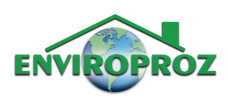Home Inspectors are not Environmental Professionals
Why Home Inspectors Shouldn’t Handle Mold and Environmental Testing: Prioritizing Health, Expertise, and Integrity
In the dynamic world of real estate transactions, the role of a home inspector is pivotal. These professionals meticulously examine properties to uncover any existing issues or potential concerns that could affect a home’s value or safety. However, there’s a crucial distinction that needs to be made when it comes to specialized inspections, particularly regarding mold and environmental testing. In this article, we’ll delve into why home inspectors should refrain from conducting mold and environmental assessments, leaving such tasks to the expertise of Indoor Environmental Professionals (IEPs).
1. Specialized Expertise:
Mold and environmental testing require a specialized skill set and knowledge base that extends beyond the typical scope of a home inspector’s training. While home inspectors are adept at identifying structural issues, electrical problems, and plumbing concerns, they may lack the in-depth understanding necessary to accurately assess mold growth or environmental hazards.
Indoor Environmental Professionals undergo extensive training and certification specific to mold assessment and remediation. Their expertise encompasses a comprehensive understanding of mold types, sampling methodologies, interpretation of results, and effective remediation strategies. By entrusting mold testing to qualified IEPs, homeowners can be assured of thorough and accurate assessments that prioritize their health and safety.
2. Setting Occupants’ Health as a Priority:
The presence of mold and environmental hazards can have significant implications for occupants’ health and well-being. Certain mold species release harmful toxins that can cause mold illness, exacerbate respiratory conditions, trigger allergies, and compromise indoor air quality. Given the potential health risks associated with mold exposure, it’s imperative to prioritize the health and safety of occupants during property assessments.
Indoor Environmental Professionals are equipped with the knowledge and tools necessary to identify potential health hazards accurately. Their assessments are guided by a commitment to safeguarding occupants’ health, ensuring that any existing mold or environmental issues are addressed promptly and effectively.
3. Conflicts of Interest:
One of the primary concerns surrounding home inspectors performing mold and environmental testing is the potential for conflicts of interest. In many cases, home inspectors have close affiliations with real estate agents, who rely on them to provide favorable inspection reports that facilitate smooth property transactions. This relationship can create a conflict wherein inspectors may be inclined to downplay or overlook serious mold or environmental issues to appease realtors and expedite the sale process.
This conflict of interest compromises the integrity of the inspection and undermines the primary purpose of assessing a property’s condition objectively. Homebuyers deserve unbiased evaluations that prioritize their well-being and financial interests above all else. By engaging the services of independent Indoor Environmental Professionals, clients can mitigate the risk of compromised inspections and ensure transparent assessments that prioritize accuracy and integrity.
4. Accurate Interpretation of Lab Testing Results:
Mold and environmental testing often involve the collection of samples for analysis in laboratory settings. However, the interpretation of lab testing results requires more than just technical expertise—it demands a nuanced understanding of environmental factors, sampling protocols, and data analysis techniques.
Certified Indoor Environmental Professionals possess the requisite skills and experience to interpret lab testing results accurately. They can identify potential sources of contamination, assess the severity of mold growth, and provide actionable recommendations based on the findings. By relying on their expertise, homeowners can avoid misinterpretations or erroneous conclusions that could compromise the integrity of the inspection process.
5. Guidance and Consulting on Remediation Repairs and Pricing:
Beyond identifying mold and environmental issues, Indoor Environmental Professionals offer invaluable guidance and consulting services to homeowners. They can advise on appropriate remediation strategies, recommend qualified contractors for repairs, and provide estimates on remediation costs. This comprehensive approach ensures that homeowners are equipped with the information and resources necessary to address mold and environmental concerns effectively.
By engaging the services of certified IEPs, clients benefit from personalized guidance tailored to their specific needs and circumstances. Whether it’s addressing moisture intrusion, implementing ventilation improvements, or conducting mold remediation, IEPs offer holistic solutions that prioritize long-term health and safety.
Conclusion:
While home inspectors play a vital role in the real estate industry, it’s essential to recognize the limitations of their expertise when it comes to mold and environmental testing. By deferring such assessments to qualified Indoor Environmental Professionals, homeowners can benefit from specialized expertise, impartial evaluations, and regulatory compliance. Moreover, separating these services helps prioritize the health and well-being of occupants while ensuring accurate interpretation of lab testing results, comprehensive guidance on remediation repairs and pricing, and integrity in the inspection process. In the pursuit of safe and healthy living environments, partnering with certified IEPs is undoubtedly the prudent choice.
